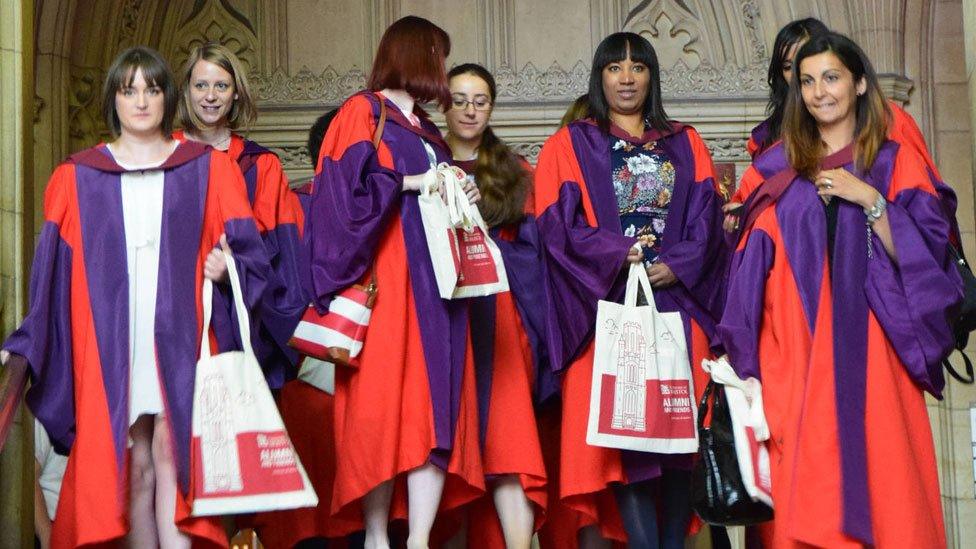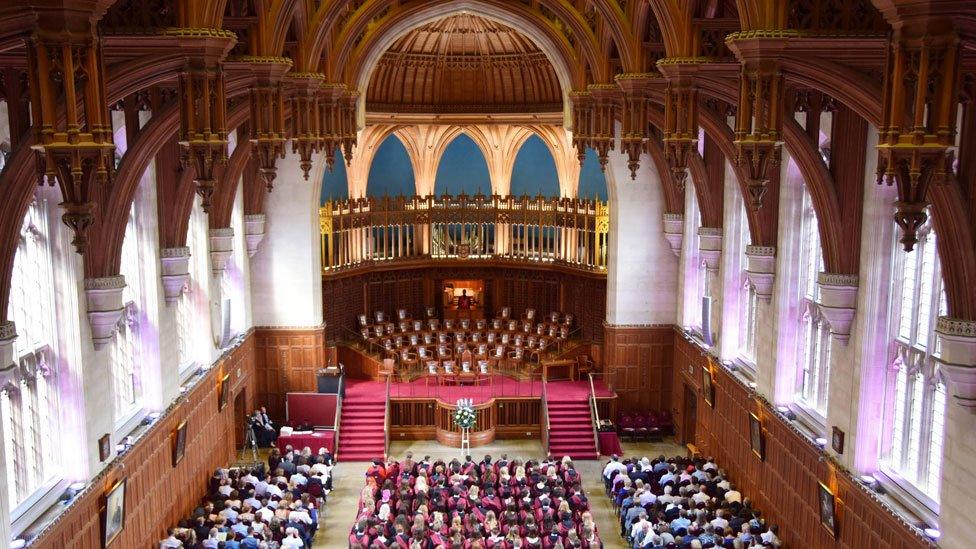University lowers entry grades for disadvantaged
- Published
- comments

The university wants to force the pace on widening access
A leading university is to increase its intake of disadvantaged students by offering places with reduced grades.
The University of Bristol is to accept lower exam grades from disadvantaged local pupils and applicants from schools with poor A-level results.
Vice-chancellor Hugh Brady said this would be a "step change" in admissions.
The project is launched as admissions service figures show young people from poorer families are much less likely to apply to university.
The Bristol project, to be launched by Education Secretary Justine Greening, is an attempt by the university to drive social mobility and attract a wider range of students.
'Potential' not exam grades
The university, which gets eight applications for every place, will make offers two grades lower than the standard offer for applicants who have been at schools in the lowest-achieving 40% for A-level results.
For every local school, there will be five places for disadvantaged pupils, based on head teachers' assessments of "potential" rather than exam grades.
The university says it wants a more diverse intake of students - as Ucas figures show that youngsters from wealthy backgrounds are almost four times more likely to apply to university than their poorer counterparts.
Despite campaigns to widen access to university, the Ucas figures show that groups such as working class white boys are still far behind in university entry rates.
Many universities, including Bristol, take into account whether students have had to overcome barriers in their education.
But the pilot schemes in Bristol will see some places directly awarded on the basis of the background of applicants.
'Bold measures'
It will encourage applications from disadvantaged students such as those who have been in care, eligible for free school meals or those who will be the first in their family to go to university.
The Bristol Scholars project will be launched at St Bede's Catholic College in Bristol.
A student at the college, Marbel Chawatama, will take up a place in Bristol this autumn, as part of a pilot year for the scholarship scheme.
"I know a lot of people want to go to the University of Bristol but don't get the opportunity. I felt really blessed," said the 18 year old, who will begin a law degree.

Bristol gets eight applications per place - but now wants more poorer students to apply
Prof Brady said: "We want to recruit the most able students, regardless of their background.
"These are bold measures designed to address a problem that is seen across the education sector," said Prof Brady.
The university has spent £18m trying to recruit students from poorer backgrounds - and he says this more direct approach will represent a "step change".
"We're confident that, in time, we will achieve a more diverse student community at the University of Bristol; this will be a change which will benefit everyone, and something we hope other universities will consider replicating."
Mayor's backing
The Mayor of Bristol, Marvin Rees, backed the project as helping to create a "fairer city".
"We must reach a place where opportunities in life are not defined by your background or economic circumstances."
Les Ebdon, director of Fair Access to Higher Education, backed such "innovative" approaches to recruitment.
"But there is still a long way to go before everyone who has the potential to go to university has equal chance to do so," said Prof Ebdon.
"I would like to see more universities thinking creatively about how they support talented young people."